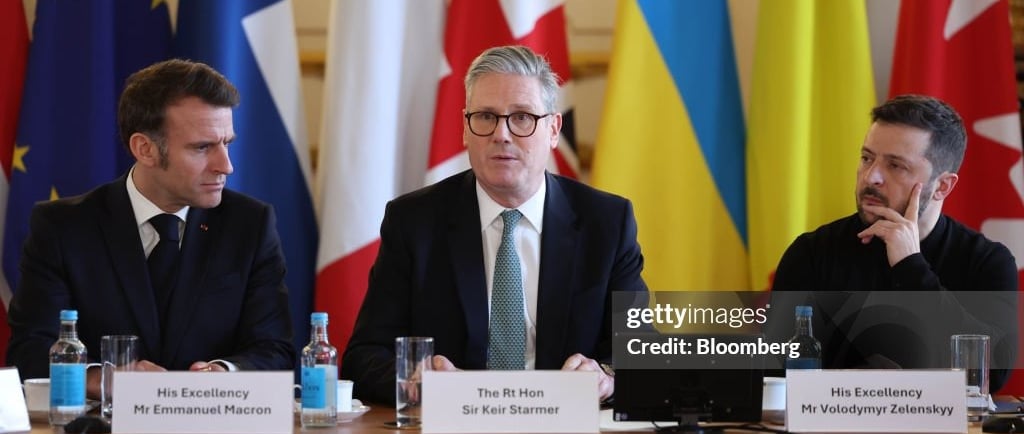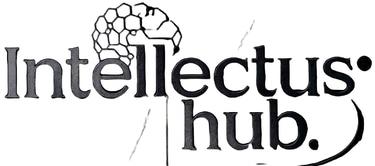London Ukraine Summit: International Promises and Security Guarantees
The London Ukraine Summit gathers global leaders to discuss security guarantees and international support for Ukraine. Explore key agreements and their impact.
DAILY UPDATE
Naman Joshi
3/20/20254 min read


London Ukraine Summit: International Promises and Security Guarantees
A robust reaffirmation of military and economic support for Ukraine in its continuous fight against Russian aggression marked the end of the 2025 London Summit on Ukraine. World leaders, defence ministers, and economic strategists attended the high-profile summit, which produced a roadmap for Ukraine's long-term security and sovereignty, a four-point plan centred on continuous military help, and strengthened economic sanctions against Russia.
Context
Held on March 2 March 2025, the London Summit took place at a pivotal point in world geopolitics. This meeting was especially important because of Russia's ongoing military actions in Ukraine, changing international alignments, and economic constraints. The goal of the summit, which was attended by the US, EU, NATO allies, and other important international partners, was to provide Ukraine with explicit security guarantees that would protect its territorial integrity and discourage future Moscow aggression.
The occasion was planned as part of a larger effort to reaffirm Western countries' commitment to preserving democratic norms and sovereignty while also strengthening support for Ukraine. Notably, Ukraine used the summit as a forum to openly address the world community about its economic needs and security concerns.
Important Points and Results
1. Promises of Military Assistance and Security
The deal to strengthen Ukraine's defence capabilities was one of the summit's most important outcomes. More than 5,000 air defence missiles, improved artillery systems, and cutting-edge monitoring equipment are all part of the £1.6 billion ($2 billion) new military aid package revealed by the United Kingdom.
By promising more weaponry, such as long-range precision missiles and advanced drone technology, to strengthen Ukraine's defence against Russian intrusions, the US reiterated its commitment to Ukraine. The Biden administration made it clear that these security steps were intended to ensure Ukraine's long-term defence self-sufficiency as well as to arm it. "Ukraine's security is our security," said NATO Secretary-General Jens Stoltenberg, reaffirming the alliance's steadfast support. The future of free nations will not be dictated by aggressors. In order to bolster regional security, Obama also revealed that NATO would be expanding its presence in Eastern Europe, with additional bases being explored in Poland and Romania.
2. Financial Aid and Economic Sanctions
The summit also addressed bolstering economic sanctions against Russia and increasing financial aid to Ukraine, acknowledging that military assistance alone is not enough. Together with the US and the UK, the European Union unveiled a fresh set of sanctions aimed at Russia's financial institutions, defence sector, and energy exports.
A $20 billion economic stabilisation package was also jointly launched by the World Bank and the International Monetary Fund (IMF) to aid Ukraine's war-torn economy. The objectives of this fund are to ensure economic resilience in the face of protracted conflict, stabilise the Ukrainian currency, and rehabilitate infrastructure.
The need for a unified economic front was emphasised by UK Prime Minister David Lammy, who said that sanctions "must be more than symbolic." The war mechanism that is enabling this aggression must be destroyed.
3. Ukraine's Route to Membership in the EU and NATO
Ukraine's ambitions to join the European Union and NATO are closely linked to its long-term security. Although the precise date is yet unknown, leaders at the London Summit reaffirmed their commitment to Ukraine's integration into Western alliances. Ursula von der Leyen, president of the European Commission, stated that more talks would begin later this year and that Ukraine had fulfilled a large number of the prerequisites needed to join the EU. NATO promised to keep strengthening military cooperation and intelligence sharing, even if Ukraine's membership is still complicated because of the current conflict.
"Ukraine has demonstrated its commitment to democracy and freedom," said Ukrainian President Volodymyr Zelenskyy, who voiced hope. We belong to NATO and the European Union, where our security is genuinely assured.
4. Peace Settlement Diplomatic Efforts
The main focus of the summit was security guarantees, but there were also talks about possible diplomatic ways to resolve the dispute. World leaders stressed that any peace agreement must be on Ukraine's terms, guaranteeing its complete sovereignty and territorial integrity, even though no direct talks with Russia were held.
In order to explore diplomatic avenues while preserving robust defensive measures, the UK and France suggested creating an international mediation framework that might involve neutral nations. However, given Moscow's serial violations of previous ceasefires and negotiations, scepticism remained strong.
International Responses and Consequences
The results of the London Summit elicited differing responses around the world. Moscow rejected the conference as "another Western provocation designed to escalate tensions," while Ukraine and its Western allies celebrated the pledges as a watershed in the fight against Russian aggression. The Russian government cautioned that providing Ukraine with more military assistance would "prolong the conflict and invite further retaliation."
However, China requested "balanced diplomacy" and advised both parties to "prioritise de-escalation and avoid prolonged military engagements." Although Beijing had previously positioned itself as a possible mediator, it still supports Russia on important geopolitical issues.
NATO's enlarged security measures were welcomed by Eastern European countries, especially Poland and the Baltic states, who saw them as crucial defences against any Russian threats.
In conclusion
The West's united opposition to Russian aggression and its steadfast support for Ukraine's sovereignty were reaffirmed at the London Summit on Ukraine in 2025. The conference was a turning point in the global response to the war, bringing with it substantial military assistance, economic penalties, and pledges to Ukraine's future in NATO and European institutions.
But there are still many obstacles in the way. The tenacity of the Ukrainian people, strategic flexibility, and ongoing cooperation will be necessary for these security guarantees to succeed. The world is keeping a careful eye on the fight to determine if these steps will be sufficient to guarantee Ukraine's survival and eventual triumph.
